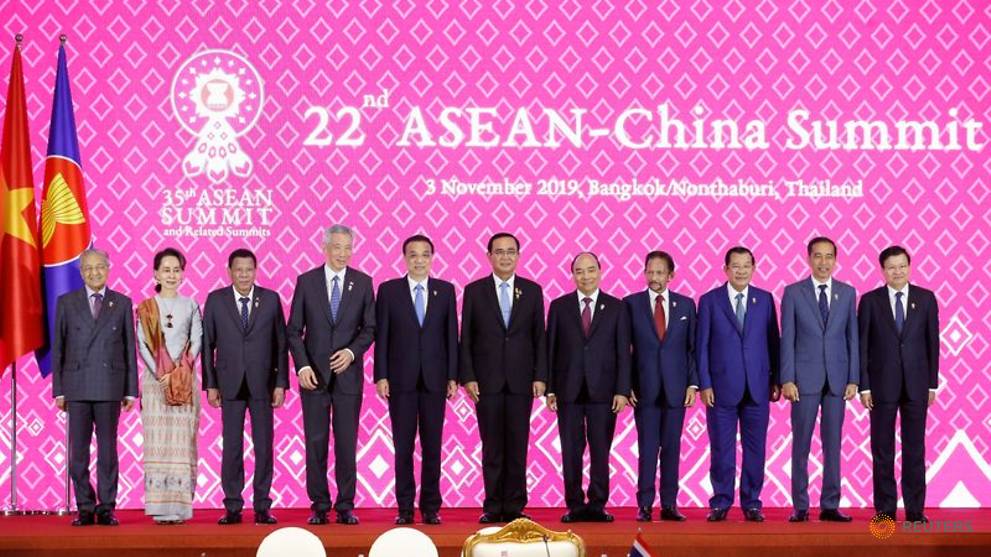
SINGAPORE: China's rising economic and political clout in Southeast Asia is a growing source of concern as US influence wanes under President Donald Trump, according to a survey of officials, academics and other professionals published on Thursday (Jan 16).
Of the 1,300 respondents to The State of Southeast Asia survey, the proportion distrusting China rose to over 60 per cent from below 52 per cent in 2019. Nearly 40 per cent said they thought China was "a revisionist power and intends to turn Southeast Asia into its sphere of influence".
Advertisement
Advertisement
"The region's concerns with China's substantial and still growing influence stems from the uncertainty in the manner that China uses its enormous power," said Tang Siew Mun of the Singapore-based ISEAS-Yusof Ishak Institute behind the survey.
"China's assertiveness in the South China Sea and Beijing's penchant for weaponising trade is enough to cause heightened concern that China's rise may not be as peaceful as it is purported to be."
That said, on one of the most important current issues, the future of 5G networks, Huawei and other Chinese telecoms companies were considered better bets than their US rivals, despite US accusations that Huawei equipment could be used for spying.
Almost 80 per cent of respondents – mainly from public office, academia and think-tanks – picked China as the most influential economic power, up from 73 per cent in 2019. Some 52 per cent said it was the most important political and strategic power, up from 45 per cent.
Advertisement
Advertisement
The large majority of those that picked China in both surveys said they were worried about this growing influence.
Respondents from Vietnam and the Philippines – who have long sparred with Beijing over claims in the South China Sea – were the most distrusting of China.
Accusations of China's mistreatment of Muslims in Xinjiang, its handling of pro-democracy protests in Hong Kong and its use of economic musclRead More – Source

SINGAPORE: China's rising economic and political clout in Southeast Asia is a growing source of concern as US influence wanes under President Donald Trump, according to a survey of officials, academics and other professionals published on Thursday (Jan 16).
Of the 1,300 respondents to The State of Southeast Asia survey, the proportion distrusting China rose to over 60 per cent from below 52 per cent in 2019. Nearly 40 per cent said they thought China was "a revisionist power and intends to turn Southeast Asia into its sphere of influence".
Advertisement
Advertisement
"The region's concerns with China's substantial and still growing influence stems from the uncertainty in the manner that China uses its enormous power," said Tang Siew Mun of the Singapore-based ISEAS-Yusof Ishak Institute behind the survey.
"China's assertiveness in the South China Sea and Beijing's penchant for weaponising trade is enough to cause heightened concern that China's rise may not be as peaceful as it is purported to be."
That said, on one of the most important current issues, the future of 5G networks, Huawei and other Chinese telecoms companies were considered better bets than their US rivals, despite US accusations that Huawei equipment could be used for spying.
Almost 80 per cent of respondents – mainly from public office, academia and think-tanks – picked China as the most influential economic power, up from 73 per cent in 2019. Some 52 per cent said it was the most important political and strategic power, up from 45 per cent.
Advertisement
Advertisement
The large majority of those that picked China in both surveys said they were worried about this growing influence.
Respondents from Vietnam and the Philippines – who have long sparred with Beijing over claims in the South China Sea – were the most distrusting of China.
Accusations of China's mistreatment of Muslims in Xinjiang, its handling of pro-democracy protests in Hong Kong and its use of economic musclRead More – Source











